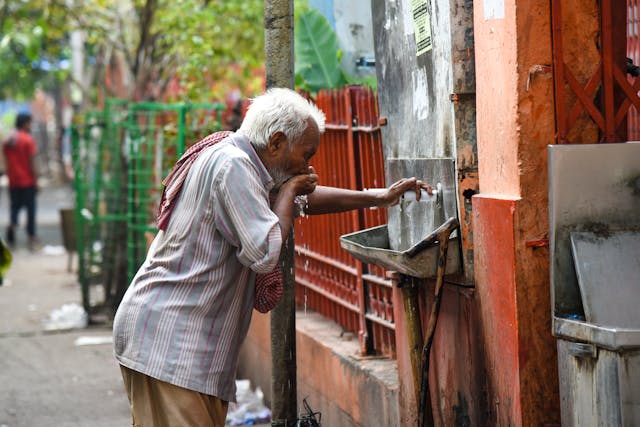Water is a fundamental requirement for life, yet it is a scarce and precious commodity for millions of people worldwide. The global water crisis poses significant challenges to billions of people, particularly in developing countries.
Amid these challenges, Islamic Relief USA (IRUSA) is actively working to combat water insecurity and provide sustainable solutions for communities in need.
The global water crisis
Worldwide, around one billion people live in areas of physical water scarcity, where the supply of water is insufficient to meet demand. This crisis extends beyond water supply levels, however. The quality of available water sources is often compromised, leading to waterborne diseases and health problems. According to a report by the United Nations Children’s Fund (UNICEF) and the World Health Organization (WHO), approximately 2.2 billion people worldwide do not have safely managed drinking water. Additionally, 4.2 billion people lack safe sanitation services, and 3 billion lack basic handwashing facilities.
The situation has significant environmental implications over and above the challenges posed by lack of access to safe drinking water. Water scarcity can lead to ecosystem degradation, biodiversity loss, and water cycle disruptions. Furthermore, the overexploitation of water resources for agricultural, industrial, and domestic purposes can deplete aquifers and rivers, exacerbating the crisis.
Women and children on the front lines
When it comes to water insecurity, women and children are the most vulnerable segments of the population. Women in many parts of the world are responsible for collecting water for their families. They often must travel long distances to complete this essential task, spending hours each day to fetch water from distant sources. This responsibility can limit their educational and economic opportunities, and put them at risk of physical harm and violence.
Children may also bear water collecting duties. In some cases, they are forced to drop out of school to do so. However, they suffer other consequences of water scarcity, such as detrimental impacts on their education and overall well-being due to the lack of clean water and proper sanitation facilities in schools. Additionally, waterborne diseases disproportionately impact children, leading to higher rates of mortality and morbidity.
Tackling water insecurity
Addressing the root causes of the water crisis requires a holistic approach that considers social, economic, and environmental factors to ensure sustainable and equitable water management for all. Efforts that are proving successful include:
- Increasing access to safe and clean drinking water: This involves improving water infrastructure, implementing water treatment processes, and promoting proper hygiene and sanitation practices in communities.
- Educating communities on water conservation techniques: By encouraging responsible water usage and implementing sustainable water management practices, we can ensure the long-term availability of this vital resource.
- Collaboration between governments, NGOs, and local communities: By working together, stakeholders can pool resources, share expertise, and create innovative solutions tailored to the needs of each community.
- Investing in research and development for new water purification technologies: Scientists and engineers are exploring innovative methods to purify water, such as advanced filtration systems and desalination techniques, to provide clean drinking water to populations in need.
- Addressing the root causes of water pollution: Implementing regulations to control industrial waste discharge, agricultural runoff, and plastic pollution in water bodies helps protect water quality and ecosystem health.
How IRUSA makes a difference
IRUSA and its partners at Islamic Relief Worldwide have been actively combatting water insecurity globally for 30 years. Their comprehensive water programs address various aspects of water scarcity, including infrastructure development, water purification, and hygiene promotion.
From microdams to flood-resistant water pumps to solar-powered boreholes to rainwater harvesting and storage, solutions are curated to ensure sustainable, lasting water supplies under the specific circumstances each community faces. Short-term interventions and solutions with high running costs are avoided, and community members are trained on maintenance. There is a particular focus on empowering women by providing them with training and resources to become community water managers. In this way, communities benefit from greater water accessibility, while women are empowered to take charge of their lives and contribute to the development of their communities.
Included in the 40-plus countries where Islamic Relief operates are:
- South Africa: General WASH (Water, Sanitation, and Hygiene) projects to reduce the risk of waterborne diseases and create greater access to safe drinking water.
- Sudan: WASH infrastructure like hand pumps, hand-washing facilities, gender-appropriate hygiene kits, and sanitation infrastructure to increase access to clean water for displaced people and returnees.
- South Sudan: WASH projects to improve sustainable water sources for drinking and agriculture.
Looking ahead
While progress has been made in addressing water insecurity, significant challenges and opportunities lie ahead. Climate change, population growth, and urbanization will continue to affect water availability and quality, making it essential for organizations like IRUSA to adapt and innovate. Your donations can make a difference.
